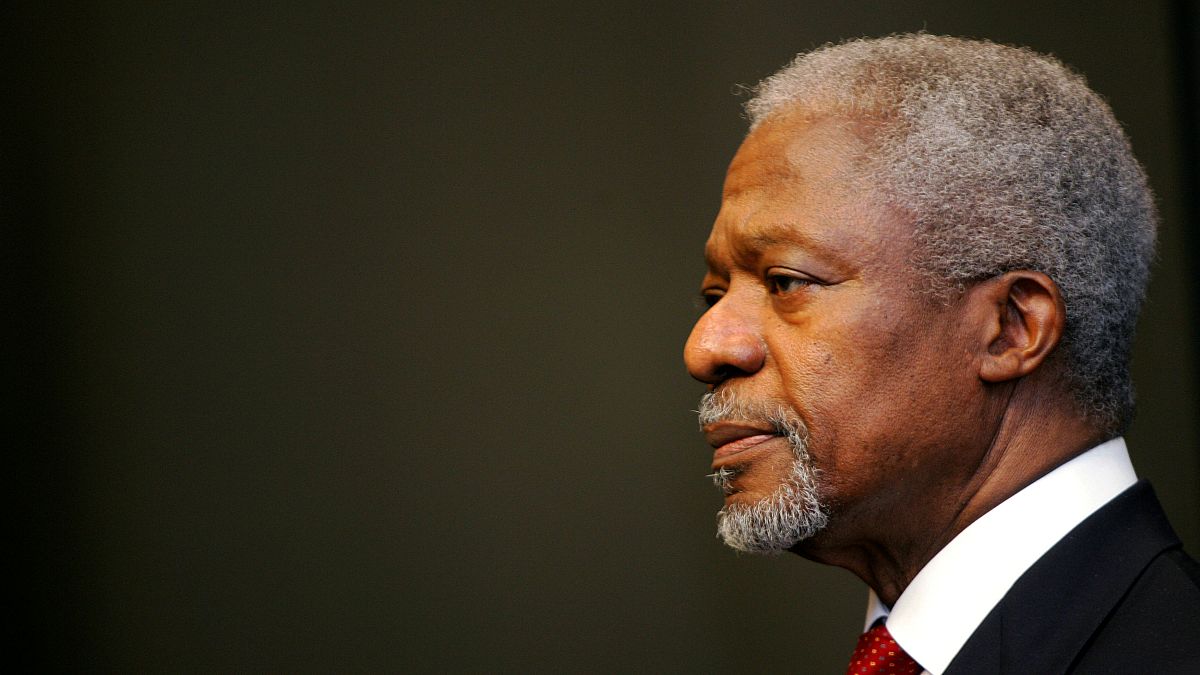The Nobel Peace Prize in 2001 went to the United Nations and its Secretary-General Kofo Annan, the incarnation of the dedicated diplomat. In 2006, the secretary-general from Ghana wrapped up his second term, after ten years in office. He handed over to Ban Ki-Moon, from South Korea
The Nobel Peace Prize in 2001 went to the United Nations and its Secretary-General Kofo Annan, the incarnation of the dedicated diplomat.
He was born on 8th April 1938 into an aristocratic family in Kumasi in what was called the Gold Coast then and is now Ghana.
Economics, international relations and management studies there, in the United States and in Switzerland prepared him for a UN career, starting when he was 24, in the World Health Organisation. Later, he oversaw budgeting, human resources and security. By 1993, Annan was Assistant Secretary-General for Peacekeeping Operations. His talents and knowledge of the organisation, along with fluent English, French and African languages satisfied key player Washington that here was a suitable replacement to succeed the Egyptian Boutros Boutros-Ghali and become the seventh Secretary-General, in December 1996. He was also the first to issue from the UN's own ranks.
"I feel humbled. It is a great challenge, which I hope I can do with the support of all the member states and my colleagues."
Annan came into the job after serving as Boutros-Ghali's special envoy during the Dayton Accords. UN peacekeeping was experiencing exceptional expansion, with 70,000 soldiers deployed in 1995, which entailed a strain on resources as well as credibility, following a series of failures to uphold the UN's primary mandate. In a now globalised world, ahead of the Millennium Summit of 2000, Annan argued for reforms in a report on the UN's role in the 21st century.
The priorities became the binding Millennium Development Goals. A 2001 report focused on a responsibility to protect populations at risk through diplomatic and humanitarian actions. The doctrine was endorsed by UN Member States in 2005.
Relations with the powerful US were rocky, over funding, policy, procedure and principle. Annan said explicitly that the 2003 US-led invasion of Iraq was illegal -- not sanctioned by the Security Council and not in line with the founding charter.
"My concern is that if it were to be adopted, it would set precedents that
resulted in a proliferation of the unilateral and lawless use of force with or
without justification."
There were also moments of satisfaction, such as when East Timor became the 191st member of the UN -- a new country born in the 21st century. Annan had been closely involved in mediation talks for its independence from Indonesia.
He had also appealed for greater concerted action to fight the HIV virus in Africa, the worst-struck continent, with more than 25 million people infected, calling this a personal priority -- another commitment recognised by the Nobel Committee.
One of the darkest parts of Annan's career remained his failure in 1994 to respond to warnings by Romeo Dallaire in Rwanda, the Canadian General in charge of the under-supported UN peacekeepers there. He said Annan played a role preventing the UN force from intervening to save lives.
In 2006, the secretary-general from Ghana wrapped up his second term, after ten years in office. He handed over to Ban Ki-Moon, from South Korea.
“You are about to take over the most impossible job on earth,' end of quote. While that may be true, I would add this is also the best possible job on Earth.''
